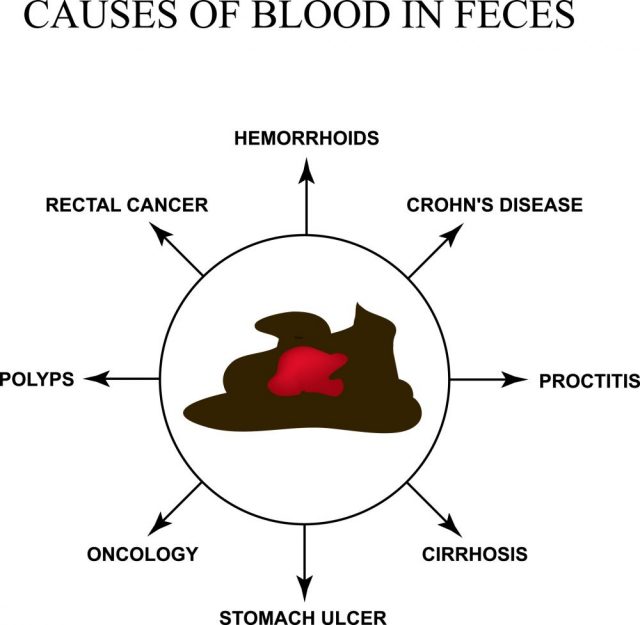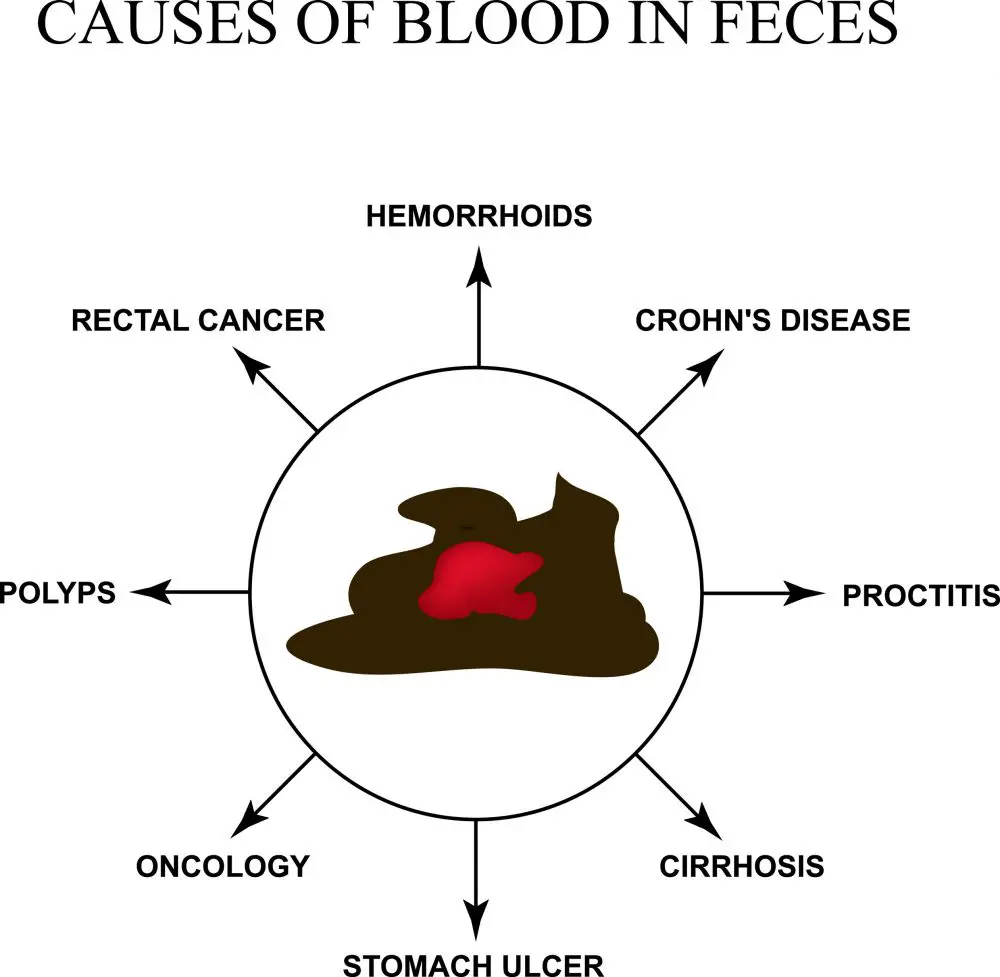
- #Black foul smelling stools containing digested blood cracked#
- #Black foul smelling stools containing digested blood skin#
- #Black foul smelling stools containing digested blood full#
When alarming changes occur, however, it’s important to contact your baby’s doctor as soon as symptoms arise.
#Black foul smelling stools containing digested blood full#
In the first few years, you will experience a full range of “normal” baby poop types that simply indicate your baby is healthfully growing and changing. A white color may indicate a lack of bile from the liver to digest food. White Baby PoopĬhalky white baby poop could be a warning sign that your baby is not properly digesting food. Although it can happen when your baby is drooling, mucus in baby poop can also be a sign of infection. Seeing slimy, green-colored streaks with glistening strings in your baby’s poop means mucus is present. Red blood found in normal poop could be a sign of a milk protein allergy, while red blood in diarrhea could mean your baby has a bacterial infection. While your baby’s poop can turn red because of something he or she ate or drank, such as tomatoes or fruit punch, red baby poop can be a sign of blood in the stool. This could also be a sign of sensitivity to milk or soy, or a lack of tolerance to something in breast milk or formula. Babies can become constipated when they are being introduced to solid foods. Your baby may be constipated if his or her poop is hard and looks like pebbles. If it goes too long without treatment, it may lead to dehydration. It can be an indication of an infection or allergy. Amyloidosis of the gastrointestinal tract may cause problems with the digestion and absorption of food nutrients, diarrhea or constipation, bleeding, blockages. Runny Baby PoopĪ baby’s diarrhea will be green, yellow or brown and runny. Baby Poop Warning SignsĬall your baby’s doctor right away if you notice any of these warning signs in his or her stools: 8. Though this does not pose a threat to your baby, it’s a good idea to check with a doctor to make sure the blood is not a symptom of something more serious.
#Black foul smelling stools containing digested blood cracked#
Oftentimes, if your baby’s poop has little specks of black blood in it, it means a baby has digested blood while breastfeeding on his or her mother’s cracked and bleeding nipples. Orange, Yellow and Brown Baby Poopīaby poop that is orange, yellow or brown in color is completely normal in breastfed and bottle fed babies. Ingesting too much bismuth subsalicylate over a prolonged period of time can also turn your tongue. Green baby poop can also occur at 4 to 6 months when you introduce solid, green foods, such as pureed peas, spinach and beans, into your baby’s diet. Medicines containing bismuth subsalicylate like Pepto-Bismol can turn your stools black. Green Baby Poopīabies that are given an iron-supplement will often have green baby poop. Usually, a different shade just means there is more or less of a pigment picked up during the digestive process. Baby Poop By Colorĭon’t fear! Changes in baby poop color are normal. This can cause chunks of food to appear in your baby’s poop or for it to have a surprising color. Not all food is completely digestible and some foods travel so quickly through the intestines that they don’t break down completely. Formula-fed babies also pass fewer, but bigger and more odorous stools than breastfed babies.


Healthy formula fed baby poop is typically a shade of yellow or brown with a pasty consistency that is peanut butter like. Healthy breastfed stools will smell sweet (unlike regular bowel-movement odor). It is typically seedy and pasty in texture and may be runny enough to resemble diarrhea. Breastfed Baby Poopīreastfed baby poop is considered normal when it’s a mustard yellow, green or brown color. Two to four days after birth, you should notice “transitional stools” that tend to be green and less tacky than meconium.
#Black foul smelling stools containing digested blood skin#
This is called meconium and is made up of amniotic fluid, mucus, skin cells and other things ingested into the utero. Newborns have a greenish-black, tarry, sticky poop that resembles motor oil. Your baby’s poop will look drastically different during his or her first few days after birth. If the cause is an autoimmune response, you may need other medications and more follow-up.The scope of baby poop types considered “normal” depend on your baby’s age and feeding method.

If it’s from taking NSAIDs, your doctor will likely recommend lowering the dosage or changing what you take. If it’s caused by drinking, cut back on alcohol. If the gastritis is caused by smoking, stop smoking. Inflammation can cause small amounts of bleeding, which can turn your stool black. Other causes include NSAIDs, smoking, or drinking alcohol or eating foods that irritate the lining of the stomach. If that mucus lining has tears or is not healthy, the stomach can become inflamed.ĭamage to your stomach lining can happen for a variety of reasons, including stress, an autoimmune response, or an infection. The stomach has a layer of mucus to protect it from the strong acids that break down foods.

Gastritis is an inflammation of the lining of the stomach.


 0 kommentar(er)
0 kommentar(er)
